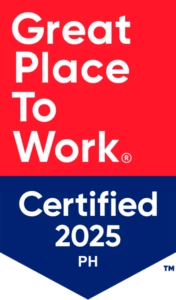- Introduction
- What Should You Know Before Hiring a Remote Software Developer?
- How Do You Assess a Remote Developer's Technical Ability?
- How Can You Evaluate Communication and Collaboration Skills?
- What Questions Should You Ask During the Interview?
- Should You Hire a Freelancer, Agency or Dedicated Offshore Developer?
- How Important is Time Zone Overlap and Availability?
- What Legal and Data Security Factors Should You Consider?
- How Much Does It Cost to Hire a Remote Software Developer?
- Where Can You Find Reliable Offshore Software Developers?
- What's the Smartest Way to Hire Offshore Developers from Australia?
- Ready to Build Your Offshore Development Team?
- FAQs
Hiring the wrong developer can cost your business thousands.
Get it right, and you’ll unlock talent that transforms your project outcomes.
Australian businesses are increasingly looking beyond local talent pools. The reasons are clear: cost savings, access to skilled developers, and the flexibility remote work offers.
But how do you separate the good from the great? How do you ensure your remote hire integrates seamlessly with your Australian team?
This guide walks you through every step. From understanding your options to making the final hire, we’ll cover what Australian businesses need to know.
What Should You Know Before Hiring a Remote Software Developer?
Technical skills are obvious. But they’re not everything.
Start with the technical basics:
- Proficiency in relevant programming languages
- Experience with your preferred frameworks
- Understanding of databases and cloud platforms
- Knowledge of version control systems like Git
Then dig deeper into soft skills.
Communication tops the list. Your developer needs to explain complex technical concepts clearly. They should ask questions when requirements aren’t clear.
Adaptability matters too. Remote work requires self-management. Developers need to adjust to your processes and tools.
Problem-solving ability is crucial. Remote developers often work independently. They need to troubleshoot issues without immediate help.
Cultural fit can’t be ignored. Look for developers who understand Australian business practices and communication styles.
How Do You Assess a Remote Developer's Technical Ability?
Portfolios and CVs only tell part of the story. You need hands-on assessment.
Skill tests work well for screening. Use platforms like HackerRank or create custom challenges. Keep tests relevant to your actual work.
Trial tasks give deeper insights. Assign a small, paid project similar to your real work. This shows how they approach problems and deliver results.
Live coding interviews reveal thought processes. Watch how candidates tackle problems in real-time. Focus on problem-solving approach, not just final answers.
GitHub reviews show coding style and collaboration. Look for clean, well-documented code. Check their contribution history and project involvement.
Don’t skip reference checks. Previous clients can share insights about reliability and work quality.
How Can You Evaluate Communication and Collaboration Skills?
Communication failures sink remote projects faster than technical issues.
English fluency is non-negotiable for Australian businesses. But go beyond basic language skills. Look for clear, concise communication. Can they explain technical concepts to non-technical stakeholders?
Test their communication during interviews. Ask them to explain a complex project they’ve worked on. Pay attention to clarity and structure.
Collaboration tools matter. Ensure candidates are comfortable with Slack, Zoom, and project management platforms. Some developers excel technically but struggle with remote communication tools.
Response time expectations need clarification upfront. Remote doesn’t mean unavailable. Set clear expectations about communication frequency and response times.
Time zone considerations affect communication windows. Calculate overlap hours with your team. Ensure sufficient overlap for meetings and real-time collaboration.
What Questions Should You Ask During the Interview?
Your interview questions should cover technical skills, communication ability, and cultural fit.
Technical questions might include:
- Walk me through your approach to debugging a complex issue
- How do you ensure code quality in your projects?
- Describe a challenging technical problem you’ve solved recently
Behavioural questions reveal work style:
- How do you manage your time when working remotely?
- Describe a situation where you had to work with unclear requirements
- How do you stay updated with new technologies?
Collaboration questions assess team fit:
- How do you handle feedback on your code?
- Describe your experience working with international teams
- What tools do you use for project communication and tracking?
Create a standardised checklist to evaluate each candidate consistently. This helps compare candidates objectively and ensures you cover all important areas.
Should You Hire a Freelancer, Agency or Dedicated Offshore Developer?
Each option suits different situations.
Freelancers work well for short-term projects. They’re flexible and often cost-effective. But they might juggle multiple clients, affecting availability.
Agencies provide teams and project management. They handle recruitment and management overhead. However, you might pay premium rates and have less control over specific team members.
Dedicated offshore developers act like remote employees. They work exclusively on your projects. This builds deeper product knowledge and team integration.
For ongoing development needs, dedicated developers often provide the best value. They understand your codebase and business requirements deeply.
For specific projects with clear scope, freelancers can be ideal. Agencies work well when you need a complete team quickly.
How Important is Time Zone Overlap and Availability?
Time zones significantly impact remote collaboration success.
Aim for at least 3-4 hours of overlap with your core team. This allows for meetings, real-time collaboration, and immediate issue resolution.
Sri Lankan developers typically overlap 4-5 hours with Australian business hours. Philippine developers can overlap 2-3 hours, depending on their location.
Indian developers often have minimal overlap with Australian hours. This can work for asynchronous work but challenges real-time collaboration.
Plan communication strategies for different time zones. Use asynchronous tools like Slack for non-urgent communication. Schedule regular video calls during overlap hours.
Document processes clearly. When team members work in different time zones, clear documentation prevents delays and miscommunication.
What Legal and Data Security Factors Should You Consider?
Protecting your intellectual property is crucial when hiring remotely.
Non-disclosure agreements (NDAs) are essential. Ensure they’re enforceable in the developer’s jurisdiction. Consider local legal advice for international agreements.
Intellectual property clauses should clearly state that all code and designs belong to your company. This prevents ownership disputes later.
Data security requires special attention. Ensure developers follow secure coding practices. Use VPNs for accessing sensitive systems.
ISO compliance matters for sensitive projects. Look for developers or agencies with ISO 27001 certification. This demonstrates commitment to information security.
Payment protection works both ways. Use platforms that protect both parties. Escrow services can provide security for larger projects.
Termination clauses should be clear and fair. Define what happens to code, access, and ongoing work if the relationship ends.
How Much Does It Cost to Hire a Remote Software Developer?
Costs vary significantly by location and experience level.
- Australian developers typically cost $80-150 per hour for freelance work. Full-time salaries range from $80,000-150,000 annually.
- Sri Lankan developers often charge $15-40 per hour. Full-time dedicated developers cost $20,000-40,000 annually.
- Philippine developers usually charge $10-35 per hour. Annual costs for dedicated developers range from $18,000-35,000.
But cost isn’t everything. Factor in management overhead, communication challenges, and potential quality differences.
Budget for additional costs like project management tools, communication platforms, and legal documentation.
Consider total value, not just hourly rates. A more expensive developer who delivers faster might cost less overall.
Where Can You Find Reliable Offshore Software Developers?
Several platforms connect Australian businesses with offshore talent.
Upwork and Freelancer offer large talent pools. However, quality varies significantly. You’ll need to screen candidates carefully.
LinkedIn allows direct outreach to potential candidates. You can research their background and connections thoroughly.
Referrals from other Australian businesses often yield the best results. Ask your network about their offshore development experiences.
Webco Talent provides pre-vetted developers. They cost more but offer higher quality assurance.
What's the Smartest Way to Hire Offshore Developers from Australia?
Success with remote developers requires a strategic approach.
- Start with a clear job description. Define technical requirements, soft skills, and cultural expectations. Be specific about communication needs and time zone requirements.
- Use a multi-stage screening process. Begin with skills tests, move to video interviews, then trial projects. This filters candidates effectively while revealing their true capabilities.
- Set clear communication protocols from day one. Define meeting schedules, reporting requirements, and emergency contact procedures.
- Plan for the long term. Building relationships with offshore developers takes time. The best partnerships develop over months and years.
- Consider starting with a small project or single developer. Learn what works for your business before scaling up.
Ready to Build Your Offshore Development Team?
At Webco Talent, we help Australian businesses grow faster by connecting them with pre-vetted, English-speaking software developers from Sri Lanka and the Philippines. We manage the entire process from screening and onboarding to ongoing relationship support, so you can stay focused on delivering results.
If you’re looking to scale your tech team with reliable offshore talent that fits right into your existing setup, we’re here to help.
Learn more about hiring offshore software developers through Webco Talent and see how we make team expansion easy and cost-effective.
FAQs
How to hire the right remote software developer?
Use a structured hiring process that includes technical assessments, live coding, and trial tasks. Look beyond skills, prioritise clear communication, adaptability, and experience with remote tools. A strong cultural fit ensures smoother integration with your Australian team and long-term success.
What are the benefits of white label recruitment?
Remote developers work outside your office, possibly local or overseas. Offshore developers are based in another country. Freelancers are independent contractors who may work on multiple projects. Each model impacts cost, availability, and how well they integrate with your in-house team.
How to assess an offshore developer’s technical skills?
Start with relevant coding tests or platforms like HackerRank. Follow up with a live coding interview and a small paid trial project. Review their GitHub for code quality and consistency. Always verify with references to confirm real-world performance and reliability.
How to evaluate communication skills in remote developers?
During interviews, ask them to explain a past project in simple terms. Look for clarity, structure, and confidence. Confirm they’re fluent in English and familiar with tools like Slack or Zoom. Set clear expectations for response times and time zone availability.
How much does it cost to hire offshore software developers?
Offshore developers in Sri Lanka or the Philippines typically cost $20,000–$40,000 per year. This offers significant savings compared to Australian salaries. Factor in experience, communication ability, and time zone alignment when assessing total value—not just the hourly rate.
Freelancer vs dedicated offshore software developer – which is better?
Freelancers suit short-term or one-off tasks. Dedicated offshore developers work full-time on your projects and offer better integration, consistency, and accountability. For ongoing development needs, dedicated developers usually provide greater value and long-term results.
Related posts:
 Offshoring Software Development: A Guide to Hiring an Offshore Developer for Co Development Software
Offshoring Software Development: A Guide to Hiring an Offshore Developer for Co Development Software
 Hiring Developers for Your Australian SMEs: Local vs Offshore Cost Breakdown
Hiring Developers for Your Australian SMEs: Local vs Offshore Cost Breakdown
 Why Australian Businesses Need Digital Marketing Specialists in 2026: Solving the 370,000-Worker Talent Crisis
Why Australian Businesses Need Digital Marketing Specialists in 2026: Solving the 370,000-Worker Talent Crisis
 How to Manage a Remote Team Effectively from Australia: The Complete Guide
How to Manage a Remote Team Effectively from Australia: The Complete Guide





